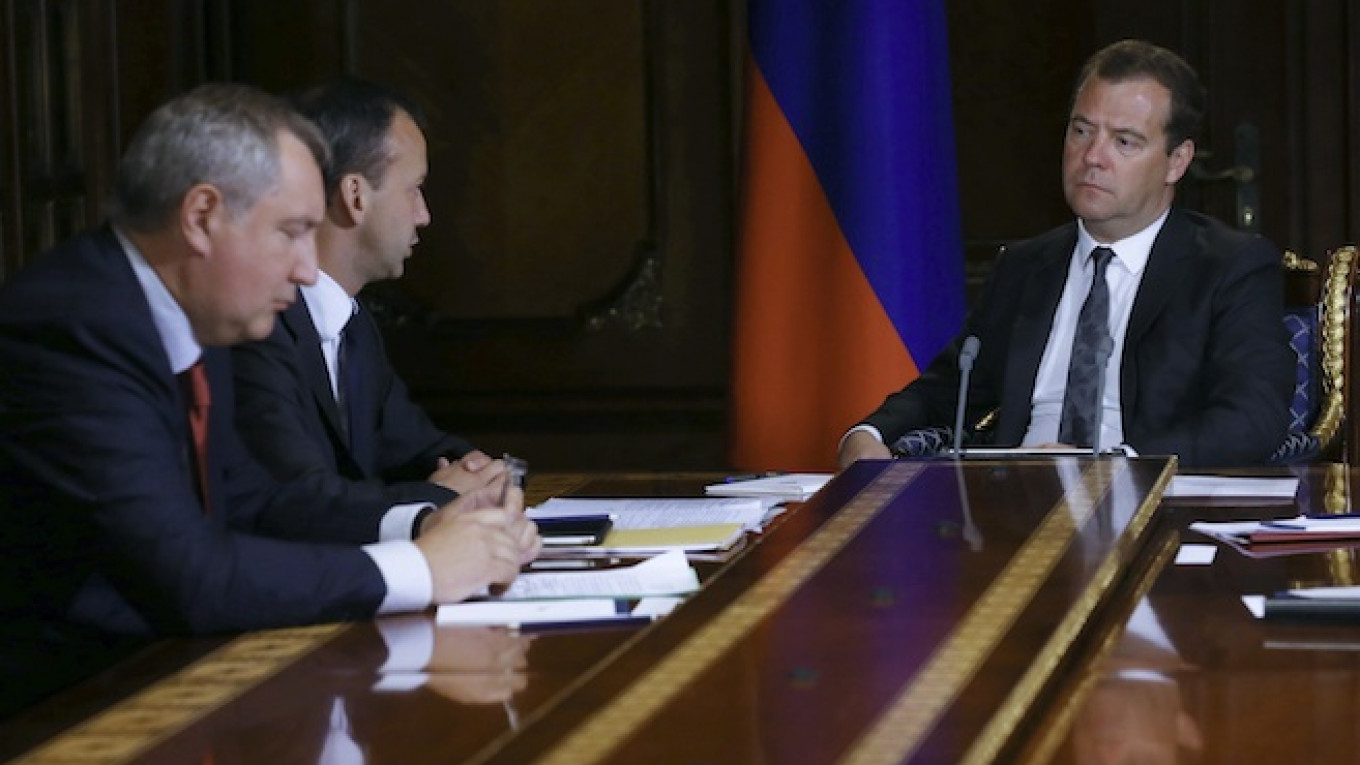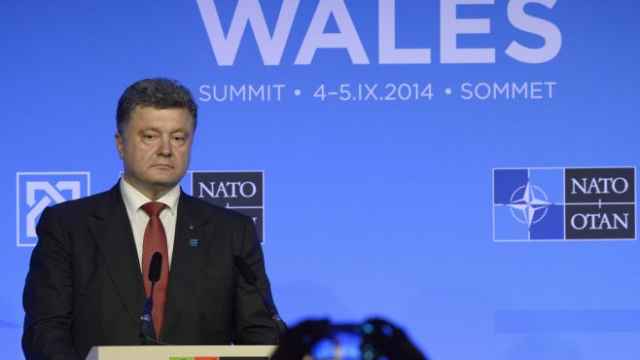Moscow will respond "asymmetrically" to new sanctions over the Ukraine crisis, possibly targeting flights over Russia, if its Western partners press on with "the temptation to use force in international relations," Prime Minister Dmitry Medvedev said.
Blaming the West for damaging the Russian economy by triggering several rounds of "stupid" sanctions, Medvedev underlined Moscow's belief it is occupying the higher ground in the worst confrontation with the West since the Cold War.
Russia may have been too patient in responding to sanctions imposed so far by the United States and European Union over Moscow's role in Ukraine, he told the Russian daily Vedomosti. That mistake would not be repeated.
"If there are sanctions related to the energy sector, or further restrictions on Russia's financial sector, we will have to respond asymmetrically," he said in an interview published on Monday, adding the airlines of "friendly countries" were allowed to fly over Russia.
"If Western carriers have to bypass our airspace, this could drive many struggling airlines into bankruptcy. This is not the way to go. We just hope our partners realize this at some point."
The European Union has agreed on new economic sanctions on Russia, including oil company Rosneft and units of gas producer Gazprom, which should come into force on Monday, but said they could be suspended to allow Moscow to show it was resolving the conflict that has killed nearly 3,000 people.
A ceasefire was agreed on Friday by envoys from Ukraine, the leadership of pro-Russian separatists fighting Kiev government forces, Russia and Europe's OSCE security watchdog but it has been tested by fighting in eastern Ukraine.
Shelling resumed near the port of Mariupol on the Sea of Azov on Saturday, just hours after Russian President Vladimir Putin and Ukrainian counterpart Petro Poroshenko had agreed in a phone call that the truce was holding. One woman was killed and at least four others wounded in fighting overnight into Sunday.
Stupid Sanctions
Medvedev said the sanctions had done little to bring "calm in Ukraine."
"They are wide of the mark, as the vast majority of political leaders recognize. Unfortunately, we are seeing the inertia of a certain way of thinking and the temptation to use force in international relations," he said.
The prime minister, who was once seen as the liberally-minded foil to Putin but now increasingly delivers harsh messages, said leaders in Ukraine should seize on Russian proposals for a peace plan which would leave separatists in control of large areas of territory in eastern Ukraine.
"Now comes the delicate work of achieving a durable peace," he said. "I hope that these efforts will succeed."
Calling sanctions "a stupid idea," Medvedev said economic measures often became political and hinted that Russia could rethink its commitment to global security cooperation.
"In politics things are often asymmetrical and there are worse things than economic restrictions, such as possible cracks in the global security system. I hope this isn't what our Western partners want and that the people calling the shots aren't crazy," he said.
He acknowledged Russia's economy had hit problems, and that growth would reach half a percent this year "or perhaps slightly more."
But Russia's ban on food from the EU, United States, Canada and Norway would spur domestic agriculture by forcing consumers to pay attention to Russian produce and for farmers to modernize, he said.
"We weren't the ones who started it. In fact, we were too patient. There was an urge to retaliate sooner, but it was the president's position not to respond," he said.
"But after several waves of sanctions, a decision had to be taken. Importantly, this political decision is supported by the vast majority of Russians."
A Message from The Moscow Times:
Dear readers,
We are facing unprecedented challenges. Russia's Prosecutor General's Office has designated The Moscow Times as an "undesirable" organization, criminalizing our work and putting our staff at risk of prosecution. This follows our earlier unjust labeling as a "foreign agent."
These actions are direct attempts to silence independent journalism in Russia. The authorities claim our work "discredits the decisions of the Russian leadership." We see things differently: we strive to provide accurate, unbiased reporting on Russia.
We, the journalists of The Moscow Times, refuse to be silenced. But to continue our work, we need your help.
Your support, no matter how small, makes a world of difference. If you can, please support us monthly starting from just $2. It's quick to set up, and every contribution makes a significant impact.
By supporting The Moscow Times, you're defending open, independent journalism in the face of repression. Thank you for standing with us.
Remind me later.






